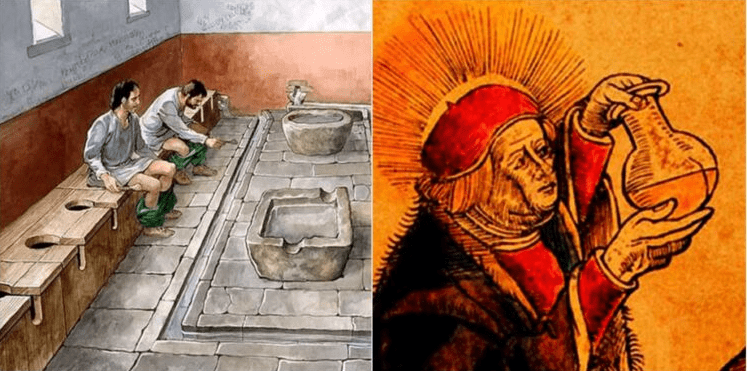Murder? Yeah. Uh-huh. Incest? Maybe. Ruthless exercise of political power? Definitely. In the list of notorious emperors, few can come close to Caligula, whose reign as the third emperor of the Roman Empire made him a member of a small club of the world’s most hated and remembered rulers.
But was Caligula really that bad?
Anthony A. Barrett, professor emeritus at the University of British Columbia and author of “Caligula: The Abuse of Power” and other studies of the notorious ruler, Anthony A. Barrett says, “He was a terrible emperor. But if we use bad in the sense of exaggerated, ridiculous behavior, he wasn’t that bad.”
Here’s how the young Roman emperor earned his bad reputation and why his short, brutal reign may be worth rethinking:
Who was Caligula?
Gaius Julius Caesar Germanicus was the son of one of Rome’s most respected leaders, the general Germanicus. But Caligula (“the little boot”), as he was called as a child, did not inherit his father’s leadership skills.
Instead, following the untimely death of his father, Caligula spent much of his childhood in exile and returned to Rome under the uneasy patronage of the paranoid emperor Tiberius, who ostracized him and his family. When Tiberius died in 37 AD, the 24-year-old Caligula became the next emperor of Rome.
What happened next became legendary: A rule characterized by cruelty, excess, caprice and political bickering. But at first, Barrett says, it looked as if the young emperor would follow in his respected father’s footsteps. “Nobody knew anything about him. They probably thought they could control him.” Young, attractive and seemingly capable, Caligula began his reign in a reasonable manner.
Mental problems?
But then things changed. About six months into his reign, the emperor’s demeanor changed. Some historians attribute the personality change to a serious illness. But according to Barrett, it was simpler: the honeymoon was over and the pressure was mounting.
Barrett believes that once the reality of the administrative and political burdens of being emperor became clear, the immature and unprepared leader struggled to earn his title. Lacking the education and political skills to maintain the confidence of both his people and the Senate, Caligula began to falter.
Soon Caligula was attacking his enemies, demanding expensive and imprudent military campaigns and even ordering the death of his wife. Rumors circulated that the hedonistic emperor was having sexual relations with his own sisters, Julia Livilla and Agrippina the Younger (future mother of Emperor Nero). Caligula exiled them after discovering behind the scenes plans against his reign. He stirred up controversy, provoked and humiliated the Senate, ordered assassinations left and right.
This capricious behavior and accusations of pitting physically inferior gladiators against wild animals for sport have long fueled speculation that Caligula suffered from some form of mood disorder or mental illness. Retrospective diagnoses have included everything from epileptic psychosis to encephalitis.
But Barrett thinks Caligula was sane, which sheds an even more sinister light on his casual brutality.
Barrett says Caligula made rational decisions right to the end, making him more like Joseph Stalin than a deranged Hitler figure: “He could distinguish reality from fantasy.” But the ruler’s reality was one of absolute power – a privilege he exercised strategically and at will.
The ancient historian Suetonius, best known for his Lives of the Twelve Caesars, writes: “When he entered the city, full and absolute power at once passed into his hands with the unanimous consent of the senate and the multitude.” But from the first moment, Caligula’s imperial power was bathed in the blood of thousands of animal sacrifices. Suetonius writes, “The joy of the people was so great that it is said that in the next three months… more than one hundred and sixty thousand animals were slaughtered in sacrifice.”
Reliable sources?
Despite these excesses, Barrett says it is important to question the accounts of Caligula’s contemporaries. The work of Caligula’s contemporaries was informed by his political enemies and distorted by rumors.
Tacitus, the most reliable historian of his time, wrote about Caligula, but unfortunately his work has not survived. Barrett, who likens Suetonius and his contemporary Cassius Dio to tabloid reporters seeking information about the embattled emperor, says the surviving records contain “ludicrous and absurd” accounts of the emperor.
Caligula’s behavior was certainly cruel, but probably a little less interesting than Dio and Suetonius would have you believe. Take Caligula’s widely reported demands that he be treated like a god. This would have been standard practice in the Roman colonies, which had to recognize Rome’s so-called “imperial cult”. But Barrett says there is no evidence, such as coins, to support a similar demand in Rome or even in Italy.
There is also the famous story of making his horse a consul, but this never happened. Barrett attributes it to a pesky emperor mocking his enemies in the senate, who were so incompetent that they could easily have been replaced by an animal.
Notoriety?
But even if Caligula never engaged in the most outrageous abuses attributed to him, the fact remains that he had an overblown and extremely long-lasting bad reputation. What could account for the enduring notoriety of a man whose reign lasted less than four years nearly two thousand years ago?
“People love villains,” says Barrett, and Caligula has an enduring reputation thanks to a combination of personal charisma and stubborn hostility among his contemporaries. According to Barrett, there is another factor: The passage of time. Because so many years have passed since his achievements, Barrett says: “Caligula is now so alien to us that we can enjoy his evil with a clear conscience.”
National Geographic. April 2, 2024.





